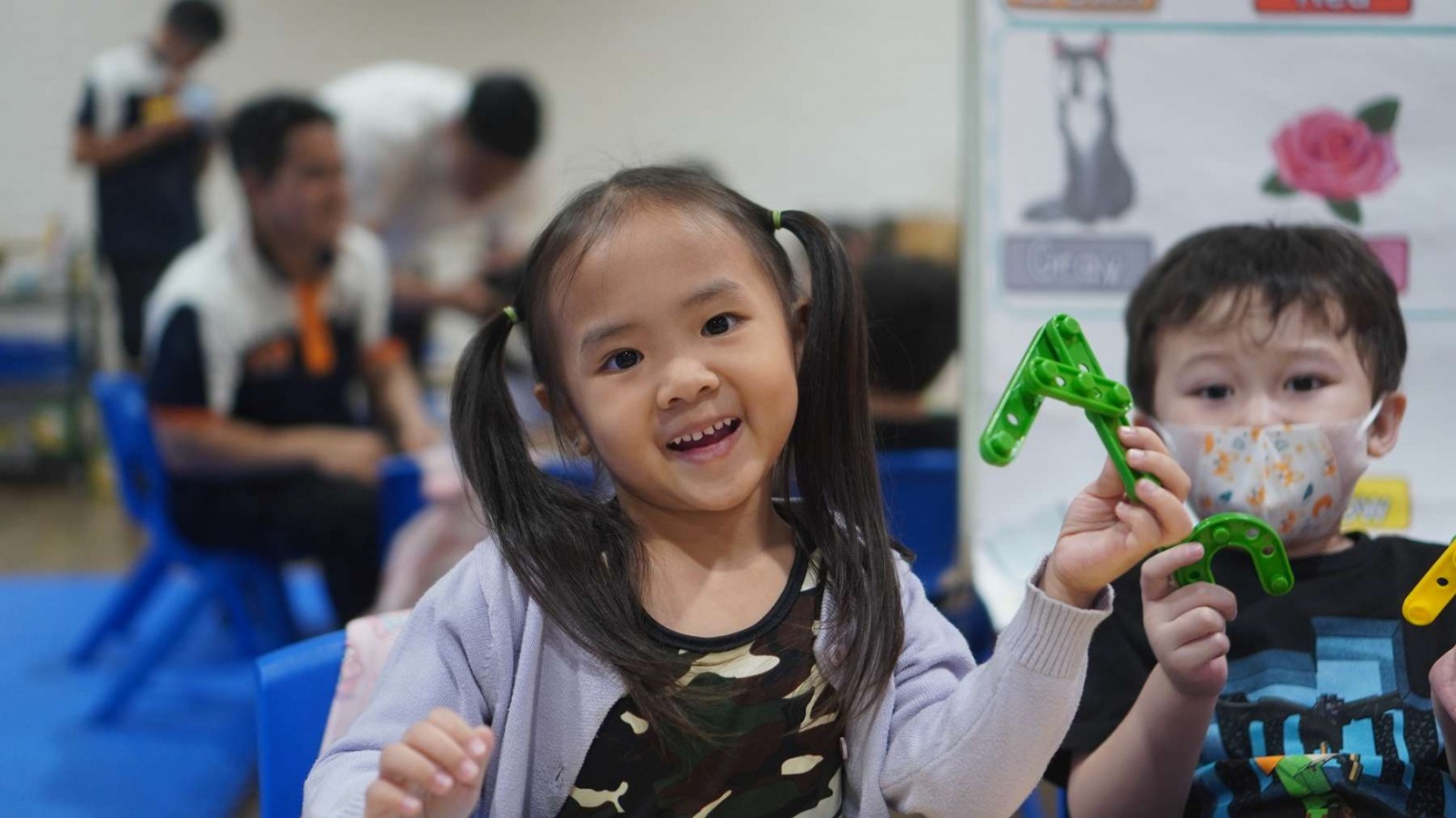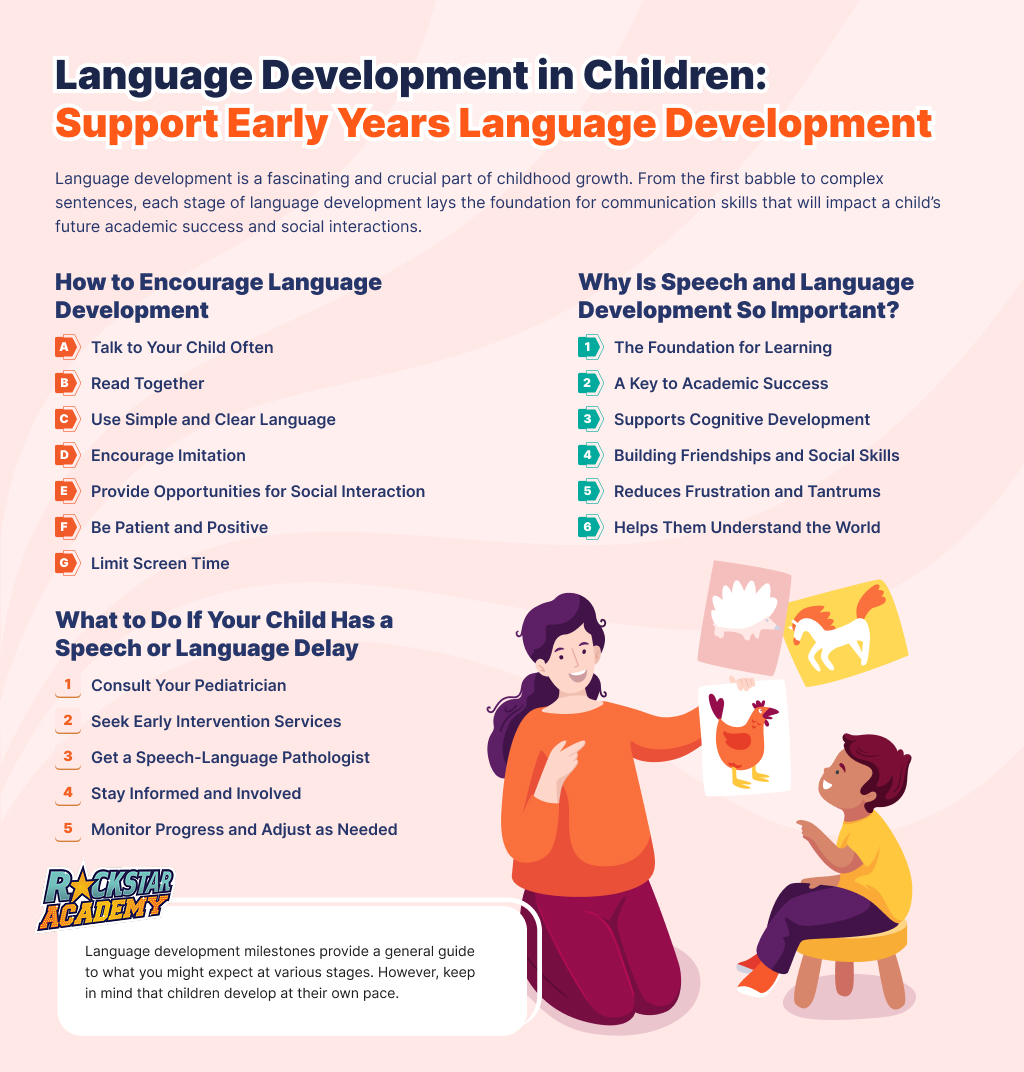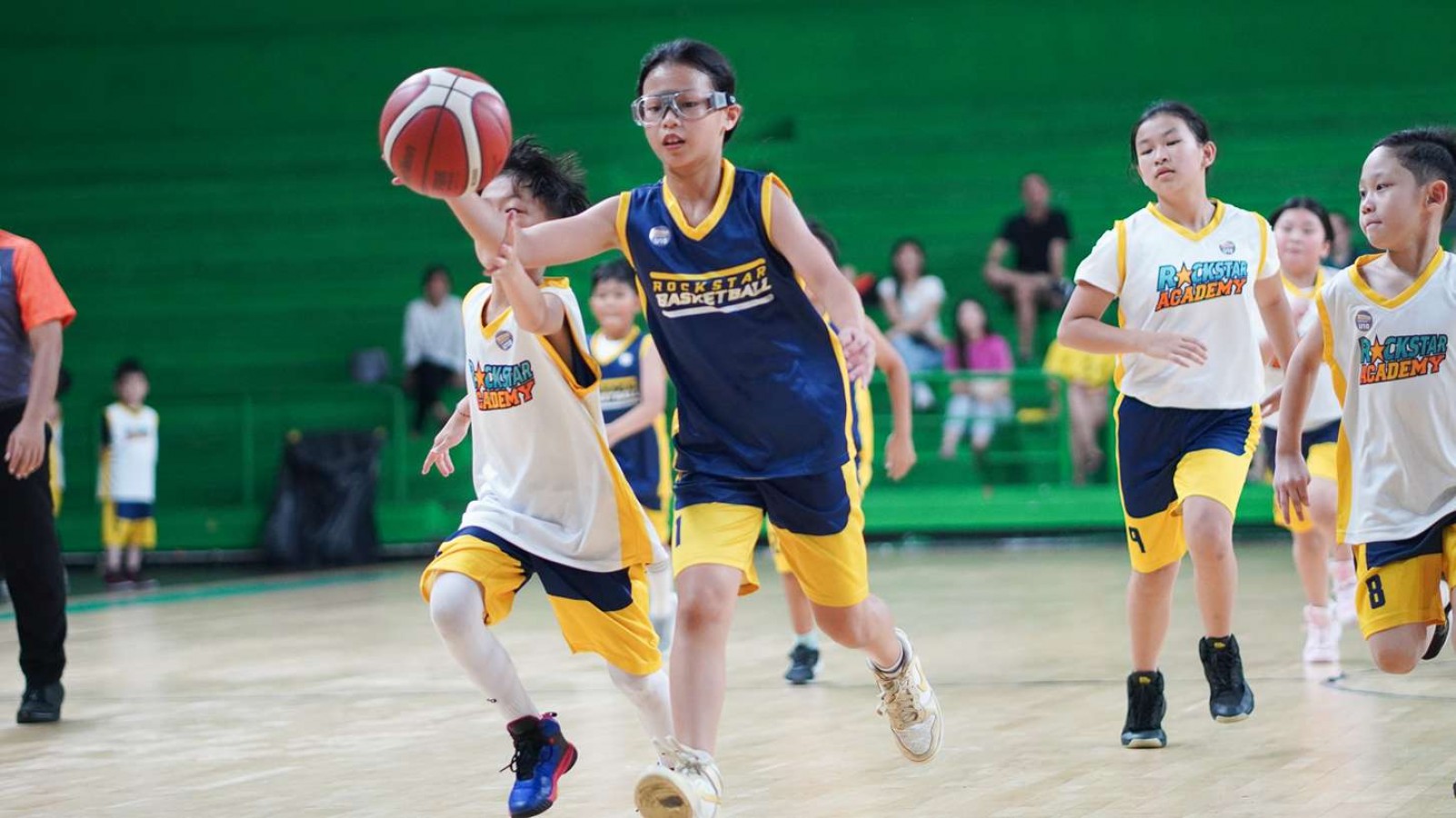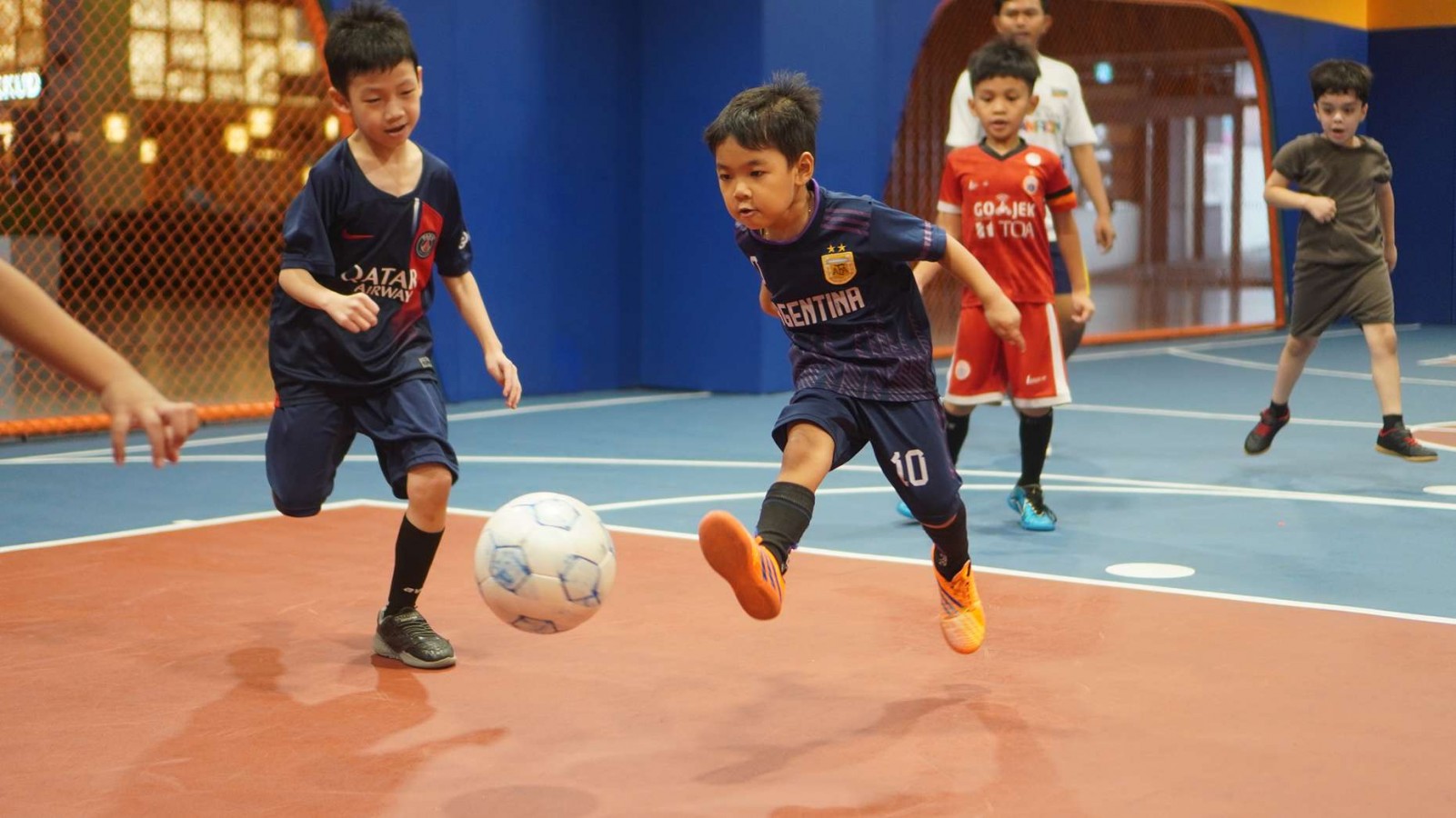Language Development in Children: Support Early Years Language Development

Language development is a fascinating and crucial part of childhood growth. From the first babble to complex sentences, each stage of language development lays the foundation for communication skills that will impact a child’s future academic success and social interactions.
Here’s a comprehensive guide on what every parent should know about language development in children, including how to encourage it, key milestones, and what to do if you notice any delays.
Understanding Language Development
Language development involves both understanding (receptive language) and using (expressive language) words. It starts from birth and continues to evolve as children grow.
Language development is influenced by a combination of genetics, environment, and interactions with caregivers and peers. There are two language development you have to be aware of:
- Receptive Language
This is the ability to understand and process language. It begins with recognizing sounds and progresses to understanding words and sentences.
- Expressive Language
This refers to a child's ability to use words and sentences to convey thoughts and ideas. It starts with simple sounds and words and develops into complex sentences and storytelling.
Why Is Speech and Language Development So Important?
According to research, speech and language skills play a crucial role in a child’s growth and future success. Here’s why developing these abilities early on is so important:
1. The Foundation for Learning
Before children can learn to read, they need to understand and use language. In school, most lessons are taught through spoken and written words, so strong language skills help children grasp new concepts, follow instructions, and succeed academically.
2. A Key to Academic Success
Research shows that a child’s early vocabulary is a strong predictor of their future reading ability and overall school performance. Kids with a smaller vocabulary in their early years may struggle more with reading and comprehension later on.
3. Supports Cognitive Development
Language helps children think, reason, and solve problems. The more they develop their speech and vocabulary, the better they can process information and understand the world around them.
4. Building Friendships and Social Skills
Good communication is essential for making friends. When kids can express their thoughts and feelings clearly, they form deeper connections with others and develop stronger social skills.
5. Reduces Frustration and Tantrums
Children who struggle to express their needs often feel frustrated, leading to tantrums or outbursts. Strong language skills allow them to communicate effectively, making daily life smoother for both kids and parents.
6. Helps Them Understand the World
Language shapes the way we think and interpret what’s happening around us. When children can describe their experiences in words, it helps them process and make sense of their surroundings.
Key Milestones in Language Development
Language development milestones provide a general guide to what you might expect at various stages. However, keep in mind that children develop at their own pace. Based on Mayo Clinic, here’s the key milestones of language development in children that can help you gauge your child's progress and support their language growth effectively:
1. Birth to 6 Months
At this stage, your baby starts making sounds that are more than just cries. Cooing involves making soft vowel sounds like "oo" and "ah," while babbling includes repeating consonant-vowel combinations such as "ba-ba" or "da-da." These early sounds are important as they lay the groundwork for speaking.
Even though babies can’t talk yet, they start reacting to the sounds around them. They might turn their heads toward a familiar voice or get excited when they hear music. This shows that they’re listening and beginning to understand the concept of communication.
2. 6 to 12 Months
Around their first birthday, many babies start saying their first recognizable words. These can be simple words like "mama" or "dada." They might also use words like "bye-bye" or "more" as they begin to connect words with their meanings.
At this stage, babies also start to understand basic instructions. For example, they might follow simple commands like "come here" or "give me the toy." This shows that they’re beginning to understand the meaning of words and how they relate to actions.
3. 12 to 24 Months
Toddlers start to build a vocabulary of 50-100 words by the end of this period. They begin to use words more frequently and may start combining them into simple phrases, such as "more juice" or "big truck." This growth in vocabulary helps them express their needs and ideas more clearly.
At this age, toddlers use both words and gestures to communicate. For instance, they might say "up" while reaching their arms to be picked up. This combination of gestures and words helps them convey their messages more effectively.
4. 24 to 36 Months
From 24 to 36 months, children start putting together three- to four-word sentences, such as "I want cookies" or "Mommy go work." They also begin to ask simple questions like "Where’s daddy?" This shows that they’re learning how to structure sentences and ask for information.
As children approach age three, their speech becomes clearer, although they might still have trouble with certain sounds. For example, they might say "wabbit" instead of "rabbit." This is a normal part of learning to speak, and their pronunciation usually improves with time.
5. 3 to 4 Years
At this stage, children start using longer and more complex sentences. They can tell simple stories, describe events, and express their thoughts and feelings in more detail. For example, they might say, "Yesterday we went to the park, and I saw a big dog."
Children begin to grasp basic concepts like "big" and "small," "hot" and "cold," and follow multi-step directions. For example, they might understand and follow instructions like "First, wash your hands, then sit at the table."
6. 4 to 5 Years
As children approach age five, their language skills become more advanced. They use complex sentences and can explain ideas, recount events, and share their opinions. They might say, "I think we should go to the zoo because I love animals."
Children also start to use language in social situations, such as sharing stories with friends or negotiating during play. They learn to adjust their language based on who they are talking to, whether it’s a parent, a friend, or a teacher.
7. 5 to 8 Years
As children grow, their language skills become more advanced, allowing them to communicate more clearly, understand complex ideas, and even enjoy reading and writing. According to Raising Children article, at this stage, children start to recognize that words are made up of different sounds and syllables.
They can identify words that start with the same sound, like “Mommy made yummy muffins,” and enjoy playing rhyming games with words like cat, bat, hat, and mat. This is also when kids begin to connect letters with their corresponding sounds—a crucial step in learning to read. They start understanding that individual sounds can be blended to form words. For example, the sounds t, o, and p combine to make top.
By age 6, children can read short, simple words that are spelled the way they sound, such as dog, sun, and hop. They also begin writing or copying letters, especially those they frequently hear and use in words. By the time they reach 7 or 8, children can have full conversations that resemble those of adults. Their storytelling skills improve, allowing them to organize their thoughts and express ideas more clearly.
How to Encourage Language Development
As a parent, you play a vital role in fostering your child's language development. Here are some practical tips to help encourage this growth:
A. Talk to Your Child Often
Engage in conversations with your child throughout the day. Describe what you're doing, ask questions, and respond to their attempts to communicate.
One of the best ways to help your child develop strong language skills is by simply talking to them often! Every conversation is an opportunity for them to learn new words, practice forming sentences, and improve their communication skills.
Here’s how you can do it:
- Narrate Your Day – Describe what you’re doing, even during simple activities. For example, while cooking, you can say, “I’m cutting the carrots now. Look, they’re orange and crunchy!” This helps your child connect words with real-life objects and actions.
- Ask Open-Ended Questions – Instead of asking yes/no questions, try ones that encourage longer responses. For example, instead of “Did you have fun at school?”, ask “What was the best part of your day?” This helps them practice explaining their thoughts.
- Listen and Respond – When your child talks, show interest! Nod, smile, and respond to keep the conversation going. If they say something incorrectly, gently repeat it the right way. For example, if they say “I goed to the park”, you can reply, “Oh, you went to the park? That sounds fun!”
B. Read Together
Reading books to your child exposes them to new words and ideas. Ask questions about the story and discuss the pictures to enhance their comprehension.
To make reading time more interactive:
- Ask questions about the story, like “What do you think will happen next?” or “How do you think the character feels?”
- Discuss the pictures by pointing out details and asking your child to describe what they see.
- Act out the story using different voices or facial expressions to make it more exciting!
C. Use Simple and Clear Language
Use age-appropriate language when speaking to your child. Avoid using overly complex sentences, and repeat key words to reinforce their understanding.
When talking to your child:
- Use short and simple sentences, like “Look at the big dog!” instead of “That’s a really large canine.”
- Repeat key words to help them remember, like “Apple! A red apple! Do you want an apple?”
- Speak slowly and clearly so they can pick up the words and sounds more easily.
D. Encourage Imitation
Play games that involve imitation, like repeating sounds or words. This helps children practice new vocabulary and sentence structures.
E. Provide Opportunities for Social Interaction
Playdates and group activities allow children to practice communication skills with peers. They learn valuable social language skills through these interactions.
Encourage interaction by:
- Setting up playdates where they can chat and play with other kids.
- Joining group activities like storytime at the library or a kids’ music class.
- Encouraging pretend play, like playing “restaurant” or “doctor,” where they have to use words to express themselves.
F. Be Patient and Positive
Celebrate your child's efforts and progress, no matter how small. Avoid correcting them too harshly and instead, gently model the correct language.
Learning language takes time, so celebrate every small step! Here's what you can do:
- Praise their efforts, even if they mispronounce words, by saying “Great try! You’re learning so fast!”
- Correct gently by repeating the right words naturally. If they say “I goed to the park,” respond with “Oh, you went to the park? That sounds fun!”
- Avoid pressure – let them learn at their own pace in a fun and encouraging way.
G. Limit Screen Time
While educational programs can be beneficial, interactive play and conversation are more effective for language development than passive screen time.
What to Do If Your Child Has a Speech or Language Delay
If you notice that your child is having trouble with speech or language development, it’s important to take action to help them. Here’s a detailed guide on what to do if your child has a speech or language delay:
1. Consult Your Pediatrician
Your pediatrician is a good starting point because they can evaluate your child’s overall health and development. They can help determine if the delay is part of a broader developmental issue or if it’s something more specific to speech and language.
2. Seek Early Intervention Services
Early intervention means getting help as soon as possible, which is crucial because the earlier your child receives support, the better the outcome. Research shows that early help can make a big difference in how children develop their language skills.
Look for local early intervention programs or services that offer support for speech and language development. These programs often provide assessments and therapy tailored to young children. Your pediatrician can refer you to these services or you can contact your local school district or health department for information.
3. Get a Speech-Language Pathologist (SLP)
A speech-language pathologist is a specialist who evaluates and treats speech and language disorders. They can assess your child’s specific needs and create a personalized therapy plan.
The SLP will conduct a detailed assessment to understand your child’s speech and language abilities. They may use various tests and activities to gauge your child’s skills and identify areas that need improvement. Then, they will develop a therapy plan with specific goals and strategies to help your child.
4. Stay Informed and Involved
Understanding language development and possible delays helps you provide better support and recognize any progress your child is making. Educate yourself on typical speech and language milestones. This helps you understand what is expected at various ages and stages.
Consistently apply the strategies and exercises suggested by the SLP at home. Regular practice is key to making progress.
5. Monitor Progress and Adjust as Needed
Regularly tracking your child’s progress helps you see what’s working and what might need adjustment. It ensures that the therapy is effective and that your child is making steady improvement.
Beware of the Language Development in Children!
Monitoring your child’s language development is essential for ensuring their future success and well-being. One effective way to support this crucial aspect of their growth is by enrolling them in the Preschool & Kindergarten programs at Rockstar Academy.
At Rockstar Academy, your child will benefit from a well-rounded curriculum that includes various physical activities, engaging events, and competitions designed for different ages, skill levels, and interests.
Our experienced teachers provide the right guidance to help children become more adaptive and confident in their abilities. Additionally, our curriculum emphasizes key areas such as learning phonics, which plays a vital role in early literacy development.
To give your child the best start, consider taking advantage of our free trial class. Contact Rockstar Academy today to explore how our programs can support and enhance your child's language development and overall success.

FAQ
How can I tell if my child has a language delay?
Language delays can be indicated by a child not meeting typical milestones, such as not saying their first words by 15 months or not combining words into simple sentences by 24 months. If you're concerned, consult with a pediatrician or speech-language pathologist.
Are some children naturally late talkers?
Yes, some children are late talkers but catch up with their peers over time. However, if there are other signs of delay or the delay persists, it’s important to seek professional advice.
How important is reading to my child's language development?
Reading is crucial as it exposes children to new vocabulary, ideas, and sentence structures. It also helps improve their listening skills and comprehension.
What if my child has trouble pronouncing certain sounds?
Some pronunciation difficulties are normal, especially in younger children. However, if problems persist beyond the typical age range, a speech-language pathologist can offer guidance and support.
Can bilingualism affect my child's language development?
Bilingualism can sometimes result in a temporary delay in language development, but it often does not have long-term negative effects. Children usually catch up and benefit from being bilingual in the long run.



